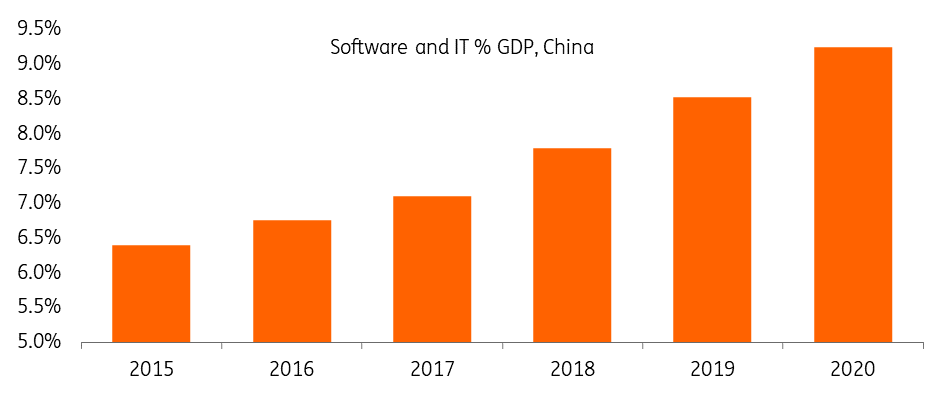China’s centenary speech spells a long tech war ahead
The message from Xi Jinping's speech marking the 100th anniversary of the Chinese Communist Party is clear - he wants China to be a force to be reckoned with, and we think this paves the way for a long and arduous tech war
Xi's message to the world
China's President Xi Jinping's hour-long speech marking the centenary of the ruling Communist Party last week was remarkable in many ways.
His comments against foreign rivals and the fact that Beijing would not allow "sanctimonious preaching" suggest China's stance is unlikely to soften when pressured by the US and its allies. Xi's comments seem to be directed both at Chinese nationals and foreign economies.
The tech war just became a lot more serious
Although the speech contained little information on new initiatives and policy objectives, it is worth noting that just before the speech, Liu He, Xi's economic czar was appointed to lead the development of chip technology. Liu was also the lead in the China-US trade negotiations in 2018 and has developed a reputation as a man for dealing with difficult tasks.
Alongside that, in early June, China also passed the Anti-Foreign Sanctions Law which allows the country to impose reciprocal sanctions on countries, companies or individuals in foreign countries. But so far, these sanctions have been limited to technology and its military use.
Putting all of this together, it would be rational to conclude that China is determined to wage a serious technology war against the US and its allies.
IT as a percentage of GDP in China

Policy implications
Cleaning up industry is only the start. The most eye-catching policies so far include spinning off fintechs from technology giants' basic apps (be it a shopping app or a messaging app) and focusing on data privacy.
The first policy is to prevent a financial crisis while the second has policy implications for foreign companies operating in China. By compelling local companies to comply with data privacy rules, foreign companies in China will have to do the same.
Going forward, we expect to see more policies to support the development of advanced technology in all areas, including semiconductor chips, big data centres, ESG and artificial intelligence. All of this needs money and Liu's appointment means there should be plenty of it. Some projects may attract foreign investment, which means capital inflows and technical support for Chinese companies. In turn, China will offer its gargantuan market.
The final question is speed. With other countries advancing their own technology, it's not clear when or even if China will win the tech race. What we do know is that this investment will count towards GDP, providing the economy with the much needed extra support.
This publication has been prepared by ING solely for information purposes irrespective of a particular user's means, financial situation or investment objectives. The information does not constitute investment recommendation, and nor is it investment, legal or tax advice or an offer or solicitation to purchase or sell any financial instrument. Read more
Download
Download article
8 July 2021
Good MornING Asia - 9 July 2021 This bundle contains 4 Articles
